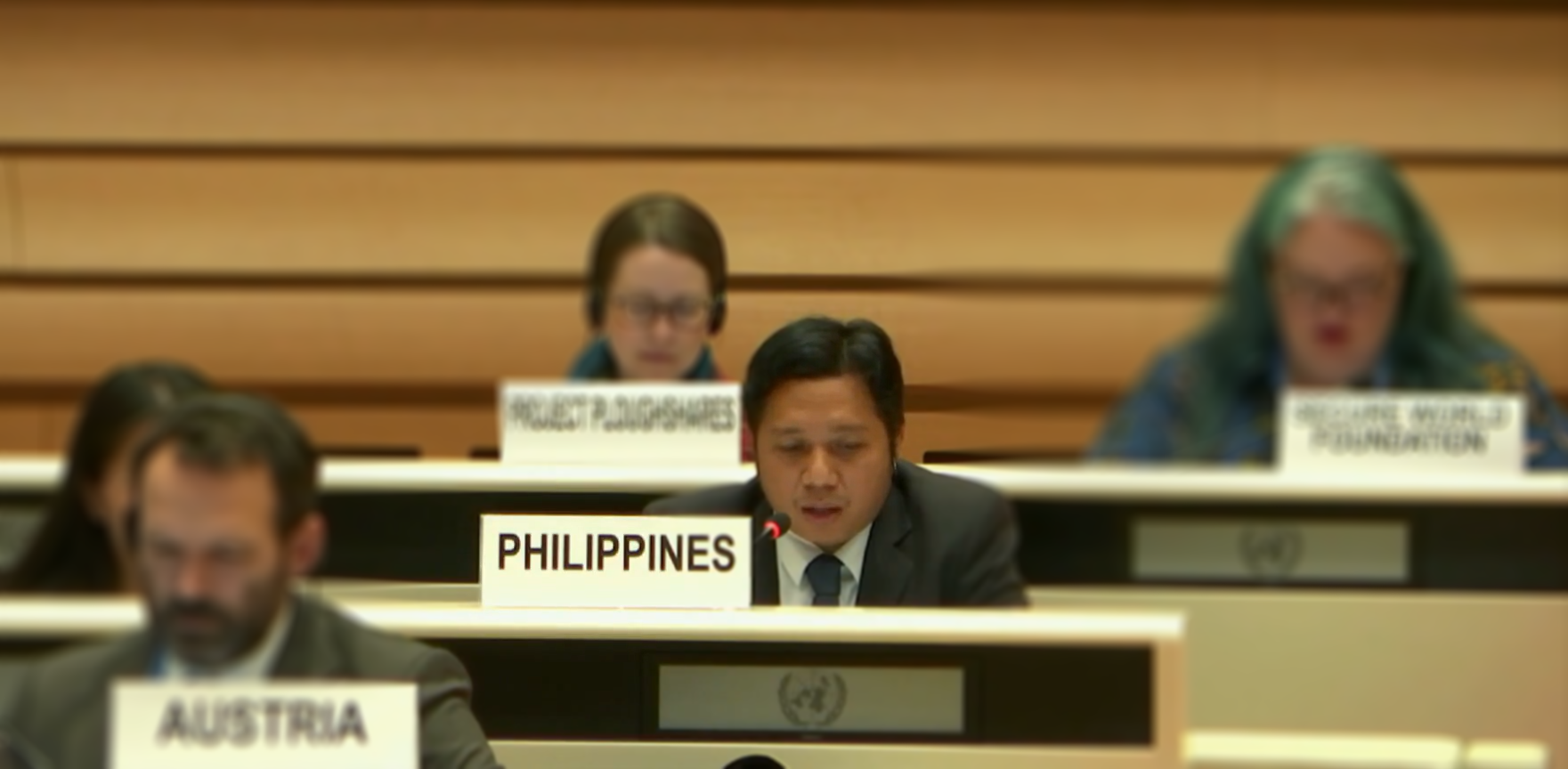The Philippine Space Agency (PhilSA) represented by Atty. Giovani Concepcion, Chief of the PhilSA Space Policy and Legal Affairs Division, delivered a statement to present the jointly submitted Working Paper of the Philippine delegation with Germany on 30 January 2023 to the 3rd session of the United Nations Open-Ended Working Group (OEWG) on Reducing Space Threats Through Norms, Rules, and Principles of Responsible Behaviours in Geneva, Switzerland.
The working paper aims to make recommendations on possible norms, rules and principles of responsible behaviours relating to threats by States to space systems, including, as appropriate, how they would contribute to the negotiation of legally binding instruments, including on the prevention of an arms race in outer space
Read the full statement below:
Philippines
Third Session of the Open-Ended Working Group on
Reducing Space Threats through Norms, Rules and Principles
of Responsible Behaviours
30 January 2023
Agenda 6(c), Topic 1: Norms, rules and principles derived from existing international legal and other normative frameworks
Presentation of the Working Paper of the Philippines and Germany
Delivered by Atty. Giovani Concepcion,
Chief of Space Policy and Legal Affairs, Philippine Space Agency
Mister Chair,
My delegation thanks you again for your excellent stewardship of our work. We also thank the Secretariat for their precious support and excellent arrangements for this session.
The Philippines and Germany take the floor to present our second working paper containing recommendations on possible norms, rules, and principles of responsible behavior relating to threats by states to the space system. The General Assembly has given this group the mandate to submit such recommendations, including as appropriate, how they would contribute to the negotiation of legally binding instruments, including on the prevention of an arms race in outer space.
Our second joint working paper with Germany aims to identify and discuss possible principles and measures that can constitute the general framework of responsible behaviors in outer space. We hope this will be useful in determining the scope of later norms and paving the way for their acceptance in principle. It also aims to explore possible measures for trust and confidence building.
This working paper is not prescriptive, rather it aims to contribute to the deliberations of this group in accordance with its mandate. We welcome the co-sponsorship of this working paper by Nigeria. The working paper is divided into two parts: The first containing recommendations on the principles of responsible behavior, and the second on the measures to operationalize trust and confidence building.
As an initial step, it is essential to identify and discuss basic principles that can constitute the backbone of responsible behaviors. They are useful for determining the scope of later norms and paving the way for their acceptance in principle. These considerations apply in times of peace. In times of armed conflict, international humanitarian law applies.
Some of these principles of responsible behavior have been affirmed by the General Assembly, including the commitment not to conduct destructive, direct-ascent anti-satellite missile testing. Such tests result in the creation of large amounts of space debris that put at risk the crewed and uncrewed space systems of other states.
Our working paper also recommends commitment against testing of kinetic counter-space capabilities, seeking consent when conducting rendezvous operations, considerations regarding proximity operations, commitment against interference with other space systems and interference with space-based critical services, and considerations regarding launching of missiles and space launch vehicles.
Let me now give the floor to our colleague from Germany for further remarks.
Thank you, Mister Chair.
Read the full working paper:
A_AC294_2023_WP1_GermanyPhilippines



